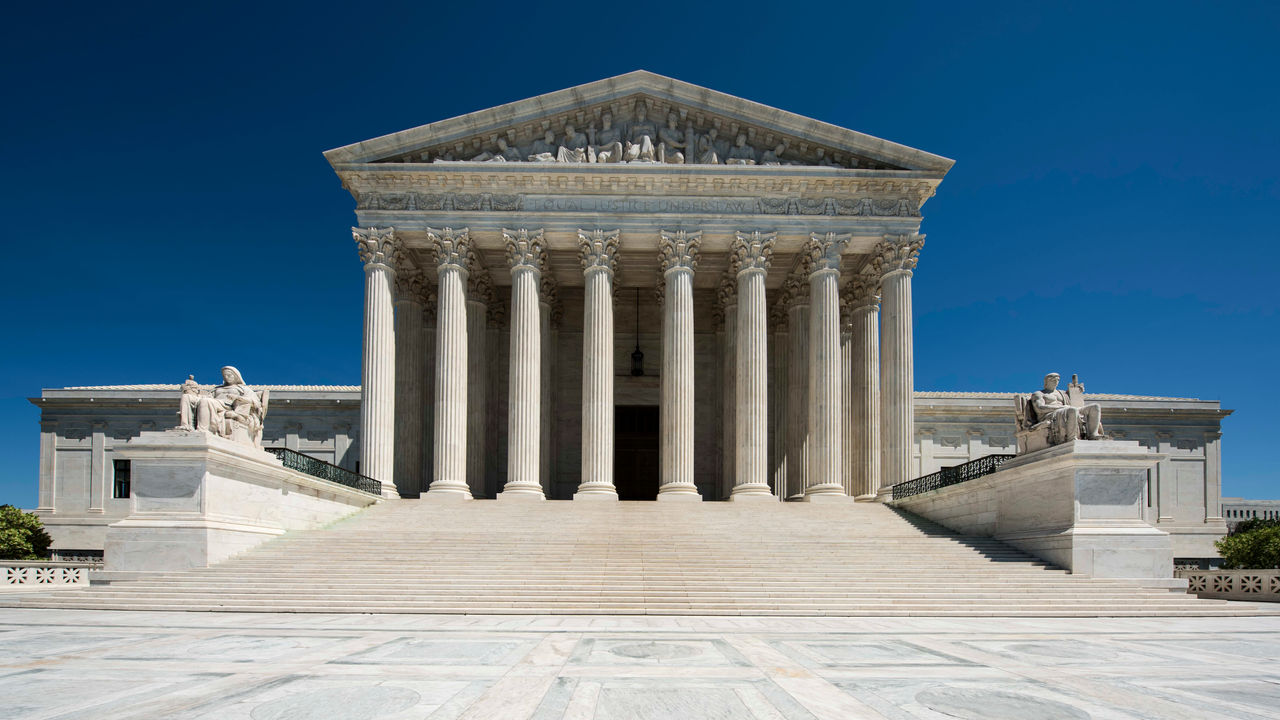The Trump administration lawfully exempted religious objectors from Affordable Care Act (ACA) regulations that require health plans to include contraceptive coverage, the U.S. Supreme Court ruled July 8.
In Little Sisters of the Poor Saints Peter and Paul Home v. Pennsylvania, the high court considered the tension between religious freedom and health care access. Although the ACA doesn't directly require employers to provide female workers with access to birth control, health plans are supposed to provide coverage for "additional preventive care and screenings" without "any cost-sharing requirements."
Under the Obama administration, the U.S. Department of Health and Human Services (HHS) determined that various forms of birth control should be included, but exemptions were allowed for religious institutions and nonprofits. Trump administration regulations significantly expanded the exemptions to the contraceptive mandate to include private employers with religious or moral objections.
In a 7-2 decision, the Supreme Court held that the government "had the authority to provide exemptions from the regulatory contraceptive requirements for employers with religious and conscientious objections."
The HHS's Health Resources and Services Administration (HRSA) has "sweeping authority" under the ACA "to craft a set of standards defining the preventive care that applicable health plans must cover" and it also has the power to "identify and create exemptions from its own guidelines," the court held.
Ongoing Litigation
The Trump administration issued two interim final rules in 2017 without public comment that upended the ACA's contraceptive guarantee, according to the state of Pennsylvania, which challenged the regulations. One of the rules provided a religious exemption, the other a moral exemption. The exemptions permit private employers to opt out of the contraceptive guarantee without notice if the employers have a sincere religious or moral objection to contraception.
Pennsylvania's lawsuit was based on alleged violations of the Administrative Procedure Act and the ACA. After the interim final rules were issued, the administration issued nearly identical final rules in 2018.
The Little Sisters of the Poor Saints Peter and Paul Home in Pittsburgh supports the Trump administration regulations. The final rules should have marked the end of a long litigation battle concerning the Religious Freedom Restoration Act (RFRA) and the contraceptive mandate, according to the religious group. The high court has never definitively resolved the RFRA dispute. In a previous ruling, Zubik v. Burwell, the Supreme Court didn't reach the RFRA question and instead remanded the case to the lower court for the parties to try to reach a resolution, the Little Sisters noted in the petition for review.
The current case represents the third time the Supreme Court has reviewed the applicability of the contraception mandate. In a 2014 decision, Hobby Lobby, the court ruled that the mandate could not be applied to closely held, for-profit companies with sincere religious objections.
In the 2016 Zubik decision, the court failed to resolve disputes over a compromise accommodation process set up under the Obama administration. Under the compromise accommodation process, an employer could self-certify that it opposed providing contraception coverage. The government could then make a separate arrangement with the company running the employer's health plan to ensure the workers still received contraceptive coverage. Religious employers objected to the process. Following Justice Antonin Scalia's death, the court deadlocked on the question of whether it violated the RFRA in Zubik, sending the case back to the lower courts.
In the July 8 ruling, the high court said that, because the ACA provided a basis for the Trump administration's exemptions, the court didn't need to decide "whether the RFRA independently compelled the [government's] solution."
"After two decisions from this court and multiple failed regulatory attempts, the federal government has arrived at a solution that exempts the Little Sisters from the source of their complicity-based concerns—the administratively imposed contraceptive mandate," Justice Clarence Thomas wrote for the majority.
Justices Ruth Bader Ginsburg and Sonia Sotomayor disagreed with the majority ruling. "Today, for the first time, the court casts totally aside countervailing rights and interests in its zeal to secure religious rights to the nth degree," Ginsburg wrote in dissent, adding that the decision "leaves women workers to fend for themselves."
The debate may not be over yet, noted Jesse Gelsomini, an attorney with Haynes and Boone in Houston. The lower courts could weigh in on whether the government followed proper procedures when it expanded the exemption.
"Furthermore," he said, "if there's a change in administration, the exemption rules could change again."
Thomas noted, "Congress could have limited HRSA's discretion in any number of ways, but it chose not to do so."
Mixed Reactions
After a long legal battle, the Supreme Court's ruling was met with mixed reviews. Congressmember Rep. Doug Collins, R-Ga., called the decision a "big win for religious liberty."
The Clare Boothe Luce Center for Conservative Women also tweeted praise for the ruling. "Today, the Supreme Court ruled in favor of the Little Sisters of the Poor, ending their seven-year legal battle to defend their right to choose which health care services they will insure for their employees," the group said.
The National Women's Law Center, however, said the decision "paves the way for employers to use religious or moral beliefs as license to discriminate." U.S. Senator Ed Markey, D-Mass., called the decision "a blow to reproductive freedom and women's rights."
In 2018, the federal government estimated that about 70,000 to 126,000 women could lose birth-control coverage from their employers under the expanded exceptions to the contraceptive mandate.
An organization run by AI is not a futuristic concept. Such technology is already a part of many workplaces and will continue to shape the labor market and HR. Here's how employers and employees can successfully manage generative AI and other AI-powered systems.




